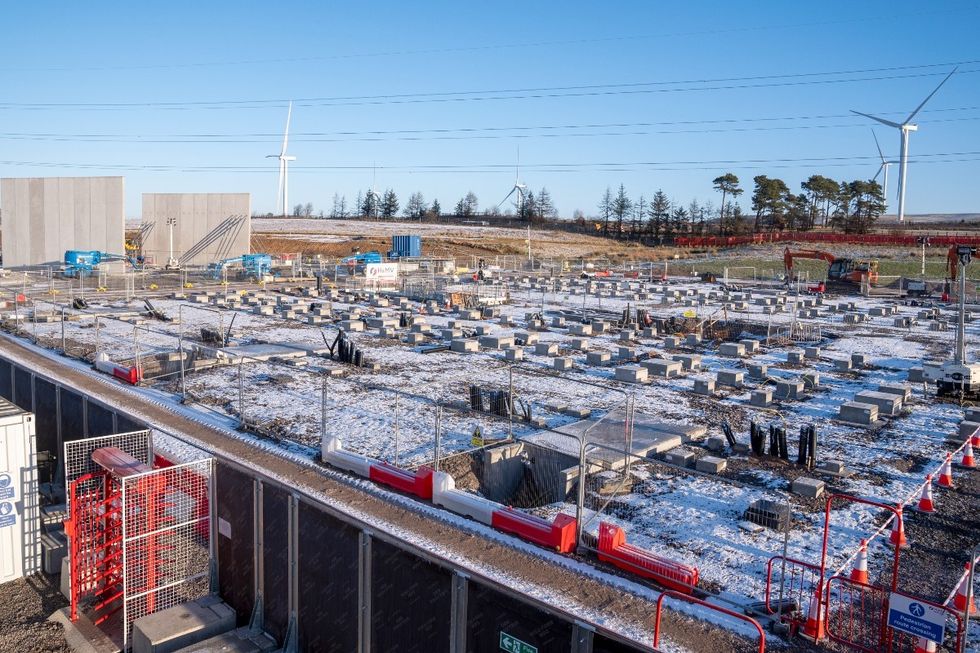A tiny Lincolnshire village has emerged victorious in what could be one of the last successful battles against Labour’s ambitious battery storage plans.
Residents of Willingham by Stow celebrated after West Lindsey District Council rejected a proposed battery park development that locals feared would make their rural landscape “look like Immingham Docks” – in reference to the UK’s largest port by tonnage which lies just 40 miles north east of the village.
The decision marks an early triumph in what is expected to be a series of confrontations between rural communities and Energy Secretary Ed Miliband’s push for hundreds of battery parks across Britain.
Miliband’s plans call for a dramatic five-fold increase in battery infrastructure across the UK, which he argues is essential for cutting carbon emissions and improving energy security.
The Energy Secretary claims these multimillion-pound developments could help reduce bills.
However, the expansion means hundreds of acres of farmland could be converted into industrial sites.

(File pic) A battery storage park being constructed in South Lanarkshire
PA
The Government sees this transformation as crucial for maintaining power supply as Britain moves towards a system increasingly reliant on wind and solar energy.
Currently, Britain has only 5GW of battery capacity spread across 215 battery parks, enough to power a few million homes.
Miliband’s Clean Power 2030 Action Plan aims to dramatically expand this, calling for “29GW-35GW across battery storage, consumer-led flexibility and interconnection capacity”.
More than 1,800 grid-scale battery storage projects are now being pushed through planning, according to Renewable UK.
LATEST DEVELOPMENTS:

Ed Miliband’s Clean Power 2030 Action Plan aims to dramatically expand Britain’s battery capacity
PA
The expansion has been aided by falling costs, with battery system prices dropping 30 per cent in the last two years to £600million per GW.
Industry leaders strongly support the battery storage expansion, with Statera CEO Tom Vernon predicting batteries could provide up to two-thirds of UK power during cold, windless winter evenings.
“These technologies can store energy at scale not just for hours, but across days,” says Vernon. “This capability is essential for maintaining energy security.”
Harmony Energy CEO Peter Kavanagh adds: “Battery energy storage will play a critical role in the future of our nation and planet.”

Ed Miliband also plans to convert more than 10 per cent of England’s farmland into solar farms or eco farms by 2050
PA
His company already operates four facilities with three more under construction.
Residents fear losing their rural tranquillity and traditional landscapes to industrial development with fire safety emerging as a particular worry after a recent incident in California, where a huge fire destroyed one of the world’s largest battery energy storage facilities.
Fire fears are heightened because lithium batteries can prove impossible to extinguish once ablaze, as they generate their own oxygen.
Despite local victories like Willingham by Stow’s, Sir Keir Starmer has vowed to override community opposition to those who would stand in his way.
The Prime Minister recently addressed protests against such developments, stating: “I say build, baby, build. I say we’re going to take on the blockers so we can build.”